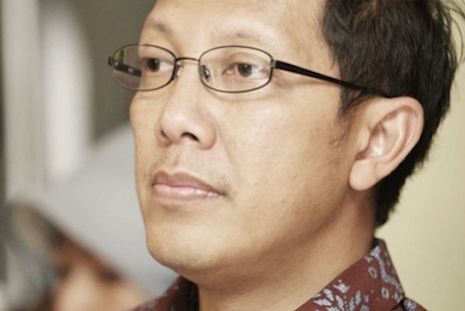As two Islamic political parties vie to place one of their members in the post of religious affairs minister in Indonesia’s new Cabinet, many have called on president-elect Joko “Jokowi” Widodo to retain the current minister, Lukman Hakim Saifuddin, due to his progressive stance on many issues, especially religious minority rights.
Lukman, who was installed in June this year to replace Suryadharma Ali, whom the country's Corruption Eradication Commission named as a graft suspect, has been praised by members of the country’s religious minorities as well as supporters of religious tolerance for his “commitment to upholding the Constitution that protects religious freedom in the country”, said Setara Institute chairman Hendardi, who uses only one name. Hendardi added that no other candidate had "proven" that they "support minorities".
Soon after his appointment, Lukman convened a meeting attended by representatives from several minority religious groups, including the Ahmadiyah, Shia, Bahai, Sunda Wiwitan and Parmalim communities. The meeting was part of Lukman’s effort to reach out to minority groups who continue to experience discrimination.
Lukman has also won praise for his firm statements regarding radicalism, including his condemnation of the growing support for the Islamic State and his urging of Indonesians not to join the group.
Under Lukman, the Religious Affairs Ministry conducts focus-group discussions that bring together minority religious groups with civil society organizations promoting interfaith dialogue. It is hoped that the meetings can produce a road map for combating religious intolerance in the country, a radical departure from the policies of Suryadharma.
“[Lukman] is so much better than his predecessor, Pak Suryadharma Ali, who instead of working to solve the problem of religious discrimination in this country became a part of the problem with his hate speech,” Hendardi said on Sunday.
Suryadharma came under fire last year for labeling Shia Islam "heretical" and for allegedly supporting the forced conversion of Shia followers in Sampang, East Java, as part of a government reconciliation initiative designed to end the conflict between the two Islamic denominations in the region -- the Shia and the majority Sunni.
Activist Bona Sigalingging, a member of the embattled GKI Yasmin Christian congregation in Bogor, West Java, also praised what Lukman had done in recent months.
GKI Yasmin has remained sealed for more than 10 years despite a ruling by the Supreme Court, the country’s highest legal institution, stipulating its legitimacy.
“Unlike Pak Suryadharma who has promised to reopen our church since 2011, Pak Lukman did not make any promises that he could not keep during his meeting with us. But we are convinced that things will be better under his leadership. He is open-minded and a supporter of religious diversity,” Bona said.
Both the National Awakening Party and the United Development Party are maneuvering to place one of their members in the position of religious affairs minister.
/129

